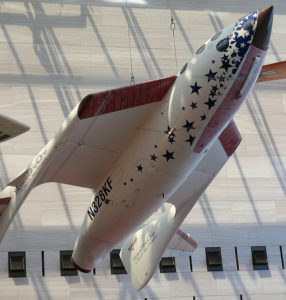 The Boeing Company is the title sponsor of the upcoming Heroes & Legends, a renewed, interactive attraction featuring the U.S. Astronaut Hall of Fame, announced Therrin Protze, chief operating officer of the Kennedy Space Center Visitor Complex during an official ceremony on Friday. It will be the first time in more than 50 years that the complex has entered into an agreement with a corporate sponsor. Protze said that Boeing “as a leader in the human exploration of space” will bring “a rich history and exciting future” to the new attraction. He added that the two parts of the agreement are so passionate to “share the stories of the heroic men and women who have sacrificed so much and inspired so many.” Continue reading “Boeing to be Title Sponsor of New Astronaut Hall of Fame”
The Boeing Company is the title sponsor of the upcoming Heroes & Legends, a renewed, interactive attraction featuring the U.S. Astronaut Hall of Fame, announced Therrin Protze, chief operating officer of the Kennedy Space Center Visitor Complex during an official ceremony on Friday. It will be the first time in more than 50 years that the complex has entered into an agreement with a corporate sponsor. Protze said that Boeing “as a leader in the human exploration of space” will bring “a rich history and exciting future” to the new attraction. He added that the two parts of the agreement are so passionate to “share the stories of the heroic men and women who have sacrificed so much and inspired so many.” Continue reading “Boeing to be Title Sponsor of New Astronaut Hall of Fame”
Historic Cape Canaveral Lighthouse to Reopen for Tours
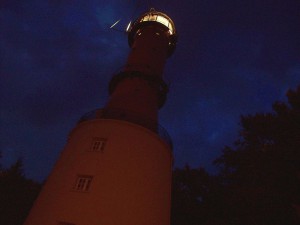 Cape Canaveral’s historic lighthouse is set to reopen to the public on January 8 after being closed for two years. The pre-Civil War lighthouse had been closed to tourists because of budget cuts and security issues.The 151-foot tall lighthouse is reopening thanks to cooperation between the Air Force and the Cape Canaveral Lighthouse Foundation. The lighthouse is the only fully operational one that is owned and operated by the Air Force.
Cape Canaveral’s historic lighthouse is set to reopen to the public on January 8 after being closed for two years. The pre-Civil War lighthouse had been closed to tourists because of budget cuts and security issues.The 151-foot tall lighthouse is reopening thanks to cooperation between the Air Force and the Cape Canaveral Lighthouse Foundation. The lighthouse is the only fully operational one that is owned and operated by the Air Force.
The Cape Canaveral Lighthouse Foundation is a private organization devoted to Continue reading “Historic Cape Canaveral Lighthouse to Reopen for Tours”
SpaceX Makes History: Falcon 9 Rocket – Successfully Launched and Landed
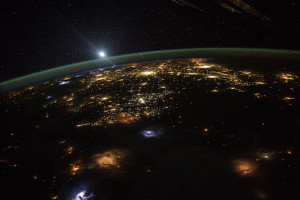 SpaceX made history at Cape Canaveral, Florida last night, December 21, when it successfully landed an intact Falcon 9 rocket upright on solid ground after traveling into space and back. Falcon 9 landing was a milestone moment for SpaceX and CEO Elon Musk. The ability to recycle the spacecrafts marks a big step toward making space travel cheaper.
SpaceX made history at Cape Canaveral, Florida last night, December 21, when it successfully landed an intact Falcon 9 rocket upright on solid ground after traveling into space and back. Falcon 9 landing was a milestone moment for SpaceX and CEO Elon Musk. The ability to recycle the spacecrafts marks a big step toward making space travel cheaper.
It’s also the company’s first flight since June, when its unmanned spacecraft exploded shortly after liftoff and destroyed the company’s Dragon cargo ship bound for the International Space Station.
After a trouble-free countdown and liftoff at 8:29 p.m. EST today December 22 from Florida’s Cape Canaveral Air Force Station, the Falcon 9 delivered 11 commercial satellites into low-earth orbit, for the satellite-communications company Orbcomm. The two-stage Falcon 9 separated, the second stage of the rocket with the satellites continued on to orbit and ten minutes after launching, the engines of the the rocket’s first stage reignited to turn it around, back to Cape Canaveral and set down six miles to the south at Landing Zone 1, which is a facility previously used by the Air Force for rocket and missile testing that SpaceX has leased.
‘The Falcon has landed,’ a launch commentator said when the first stage came into view of a camera near the landing site and SpaceX’s headquarters in Hawthorne, California, erupted in cheers, followed by chants of ‘U.S.A.! U.S.A.!’
Today’s landing was a milestone moment for SpaceX and the billionaire entrepreneur Elon Musk. Developing a reliable fleet of reusable rockets will definitely take many years, But it promises to be a game changer for the space industry and will open the heavens to exploration.
SpaceX Falcon 9 Launch Postponed Until Monday
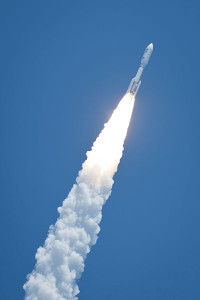 SpaceX Falcon 9 launch, scheduled for Sunday was delayed by one day.
SpaceX Falcon 9 launch, scheduled for Sunday was delayed by one day.
SpaceX delayed the scheduled launch of its 229-foot-tall Falcon 9 rocket, the company said in an official statement.
The Falcon 9 rocket had been scheduled to launch from Complex 40 launch pad, at Cape Canaveral Air Force Station in Florida at 8:29 p.m. ET Sunday, but the company announced at 4 p.m. that it would aim for a launch at 8:33 p.m. Monday as they need time “for more analysis”.
An earlier attempt at launching the Falcon 9 on June 28th resulted in an explosion and the rocket broke apart less than two-and-a-half minutes after the liftoff. The crash destroyed the company’s unmanned Dragon cargo ship bound for the International Space Station. Continue reading “SpaceX Falcon 9 Launch Postponed Until Monday”
SpaceX Will Try Next Rocket Landing on Solid Ground
 SpaceX is planning to attempt next rocket landing on solid ground at Cape Canaveral instead of on an ocean platform.
SpaceX is planning to attempt next rocket landing on solid ground at Cape Canaveral instead of on an ocean platform.
Elon Musk’s SpaceX company is hoping to land its next Falcon 9 rocket on the ground at NASA’s Cape Canaveral facility in Florida.
SpaceX has tried several times to land a rocket gently before, but those attempts were made on giant floating platforms in the ocean.
Rival spaceflight company Blue Origin has recently managed to land its own reusable rocket safely on the ground. NASA officials confirmed the terrestrial landing attempt during a press conference last week on the upgraded Kennedy Space Center’s historic launchpad 39A. The site is planned to be refitted to accommodate SpaceX’s much larger Falcon Heavy rocket when it begins launching sometime next year. Continue reading “SpaceX Will Try Next Rocket Landing on Solid Ground”
Orion’s journey has just begun
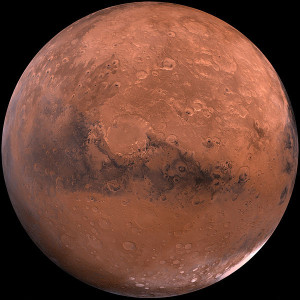 NASA has successfully launched its next-generation spacecraft Orion atop a Delta IV Heavy rocket from Kennedy Space Center on the east coast of the US state of Florida. At 7:05 am local time on Friday the launch pad in Cape Canaveral was shrouded in a bloom of fire and dense smoke.
NASA has successfully launched its next-generation spacecraft Orion atop a Delta IV Heavy rocket from Kennedy Space Center on the east coast of the US state of Florida. At 7:05 am local time on Friday the launch pad in Cape Canaveral was shrouded in a bloom of fire and dense smoke.
After delayed several times, the lift-off of the unmanned space capsule had been scheduled for 7:05 am Thursday but the first attempt had failed due to a number of technical issues: gusty winds forced automatic aborts and the launch window was extended to 14:44 GMT; two valves failed to close properly, and an unauthorized boat entered the launch area.
This is the first launch of a US spacecraft in more than 40 years to take humans further than the Moon. After the last American spacecraft had transported a group of astronauts to the ISS (International Space Station), the US human spaceflight program had been on hold for about three years and American astronauts had to use Russian shuttles to be transported to the ISS; and Russia was paid $71 million per passage.
The first phase of the flight will be conducted with a Delta 4 Heavy rocket which is known as the biggest booster rocket in the US fleet. The rocket is built by the United Launch Alliance, a joint venture of Lockheed Martin and Boeing. The next Orion missions will be powered by the Space Launch System.
This first test flight will test the guidance systems, onboard computers and other electronic systems during a passage through a dangerous radiation zone, the heat shield, as well as the parachute systems of the craft when landing in the Pacific Ocean. Orion is loaded with 1,200 sensors to record and measure the data during the flight the flight in every detail; its computers can handle 400 million instructions per second.
A second unmanned flight has been planned for 2018. In the 2020s and 2030s NASA is planning to send humans to Mars.
As you can see, Mars will no longer be just the Red Planet from the science fiction movies but maybe a new holiday destination in the not too distant future.
See the video
A brand new countdown clock at Kennedy Space Center
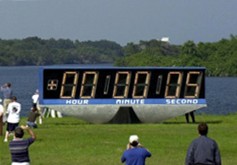 We’re only three days away from the start of the USA next generation space program that could one day take humans to Mars. The space agency has replaced the old countdown clock, a NASA icon, by a brand new one just in time for the Orion launch, December 4. Continue reading “A brand new countdown clock at Kennedy Space Center”
We’re only three days away from the start of the USA next generation space program that could one day take humans to Mars. The space agency has replaced the old countdown clock, a NASA icon, by a brand new one just in time for the Orion launch, December 4. Continue reading “A brand new countdown clock at Kennedy Space Center”
The first test launch of Orion: one step closer to Mars

NASA officials are getting ready to launch their new spacecraft Orion atop a United Launch Alliance Delta IV Heavy rocket from Kennedy Space Center at Cape Canaveral in Florida. The mission, called Exploration Flight Test 1 (EFT-1) is set for December 4. Continue reading “The first test launch of Orion: one step closer to Mars”